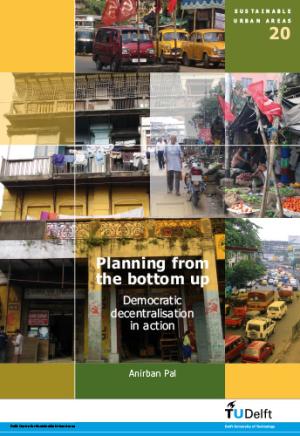Hosted by
Planning from the Bottom up: Democratic Decentralisation in Action
Synopsis
Planning from the Bottom up highlights the gap between the official rhetoric and the political reality of democratic decentralisation and bottom-up planning using an in-depth study of the metropolitan planning process in Kolkata, India. The key issue addressed here is how elected officials at different governmental levels, professional planners, and ordinary citizens interact in the process of metropolitan planning, and which players dominate the process. The focus is on the dynamic interactions between planners and the operation of the political process that shapes this reality. This book illustrates that there are differences in the real motives for the state to pursue decentralisation and what it claims to be behind its decentralisation policy and that the planning process is unlikely to be truly bottom-up if power is concentrated within any one political party. It also depicts how external funding, either from international agencies or higher levels of government, has the potential to force change in the local and regional structures of decision-making so that the voices of ordinary people can be included in public decision-making; for the effective implementation of bottom-up approaches to metropolitan planning the planning bureaucracy needs to be independent of the political class and bottom-up planning requires that planning capacity be built from a grassroots level. This requires devolution of both responsibilities and means/resources to carry out those responsibilities to the lowest level of planning.

